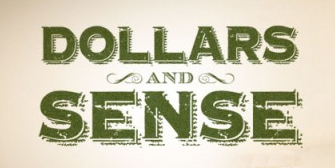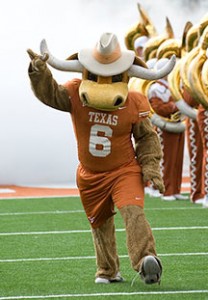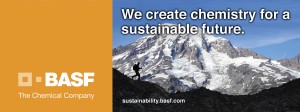 This semester, I have been taking an MBA elective with Professor Reuben McDaniel called Information and Knowledge Management. The final requirement of the class was to write a research paper addressing the topic “How do you get people to do what they already know to do?” My research paper involves accounting, so I thought it would be appropriate to discuss on this blog. Also, it introduces the kind of thinking you can be exposed to in some of the graduate business electives you can take.
This semester, I have been taking an MBA elective with Professor Reuben McDaniel called Information and Knowledge Management. The final requirement of the class was to write a research paper addressing the topic “How do you get people to do what they already know to do?” My research paper involves accounting, so I thought it would be appropriate to discuss on this blog. Also, it introduces the kind of thinking you can be exposed to in some of the graduate business electives you can take.
So… about my research paper. The knowing-doing gap I was particularly interested in was why managers continue to make short-term, profit-maximizing, decisions when they know they should be making decisions that will benefit the long term strategic direction of the organization. I especially wanted to see if financial accounting standards and accounting information systems played a role in contributing to this short term decision making. My (albeit amateur) research proved to yield some very interesting results.
What I found out:
What I have always thought about financial accounting was that it was to track financial performance of a company in a given period.
What I’ve learned from my research is that accounting is actually a method to measure the quality of management’s decisions in contributing to the long-term organizational survival of the firm… at least it can be.
What this means for all of you as future managers is that by implementing certain accounting standards and methods into the accounting information system of a company, you will be able to establish an information network for yourself that can not only integrate your organization’s long term organizational goals into your daily operations, but provide potentially daily feedback on how your decisions are contributing to sustainability objectives, natural resource management, the value your employees are bringing to the organization, how effective your recruiting and firing processes are, etc.
Ultimately, accounting can provide the framework and information managers need to enable them to make the decisions they already know they need to make for the long term benefit of the organization, and ease short term pressure from shareholders.
How I arrived to this:
Financial accounting as we know it has been limited to tracking current financial value and performance of firms because the ingrained idea in most of classic economics and traditional business theory is that a corporation’s sole purpose is to maximize short term profits. This flawed image of the role of a company is deeply embedded in the American capitalist system, even if evidence doesn’t support it. This image of a company as merely a vessel to maximize profits molds the actions of most corporations, constraining them to focus on maximizing short-term profits and delivering returns to shareholders. Their decisions are expressed by accountants in financial terms, because that is what measures the value they bring to shareholders.
According to Rosabeth Kanter in her Harvard Business Review article “How Great Companies Think Differently”, companies command enormous resources that influence the world for better or worse and their strategies shape the lives of the employees, partners, and consumers on whom they depend. Above all, the traditional view of business and accounting methods of today doesn’t capture the way great companies think their way to success.
Business is an intrinsic part of society, much like family, government, and religion, and has been one of society’s pillars since the dawn of the industrial era. Great companies should work to make money, obviously, but in their decisions on how to generate profits, they think about building institutions that can survive. Companies that want to achieve organizational survival in a complex world are aware of the need to build people and society.
The social logic that some of the best performing and most enduring companies follow demands that companies be more than instruments for generating money. This logic also provides a framework for accomplishing societal purposes and for providing meaningful livelihoods for those who work in them. According to institutional logic, the value a company creates shouldn’t simply be measured in terms of short-term profits or paychecks, but also in terms of how it sustains the conditions that allow it to flourish over time.
Rather than viewing organizational processes as ways of extracting more economic value, great companies create frameworks that use societal vale and human values as decision making criteria. Managers of great companies hold the perspective that their organization has a purpose and that they can meet stakeholders’ needs in many ways: by producing goods and services that improve the lives of users; by providing jobs and enhancing workers’ quality of life; by developing a strong network of suppliers and business partners; and by ensuring financial viability, which provides resources for improvements, innovations, and returns to investors.
New accounting methods, such as sustainability and HR accounting, can potentially measure companies’ abilities to operate in a sustainable environment and measure the value of the jobs and qualities of life they provide for employees.
What was surprising to me:
I have always been very proud to be in the number one accounting program in the country. I believe accountants play a very important role in business in that we are responsible for measuring and reporting how successful a company has been operating in a year, and the information we provide helps managers, creditors, and investors alike in making important decisions. But what I have learned in the process of this paper is that I have fallen into this knowing-doing gap myself and find myself unconsciously thinking that a company’s success can only be measured by its finances, even though I know this isn’t true from the management and strategy classes I have taken.
A lot of people think of entrepreneurs as the people that can use business to make a difference in the world, and I have always assumed that accountants can’t have a piece of this pie. However, with ideas like sustainability and HR accounting, it turns out we can in the future. We can help demand and develop accounting standards that measure all of the aspects that make a firm successful and report on how well businesses are doing on multiple fronts that to enable corporate managers to make long-term oriented decisions that can both grow their corporation and benefit society and the world we are living in.





